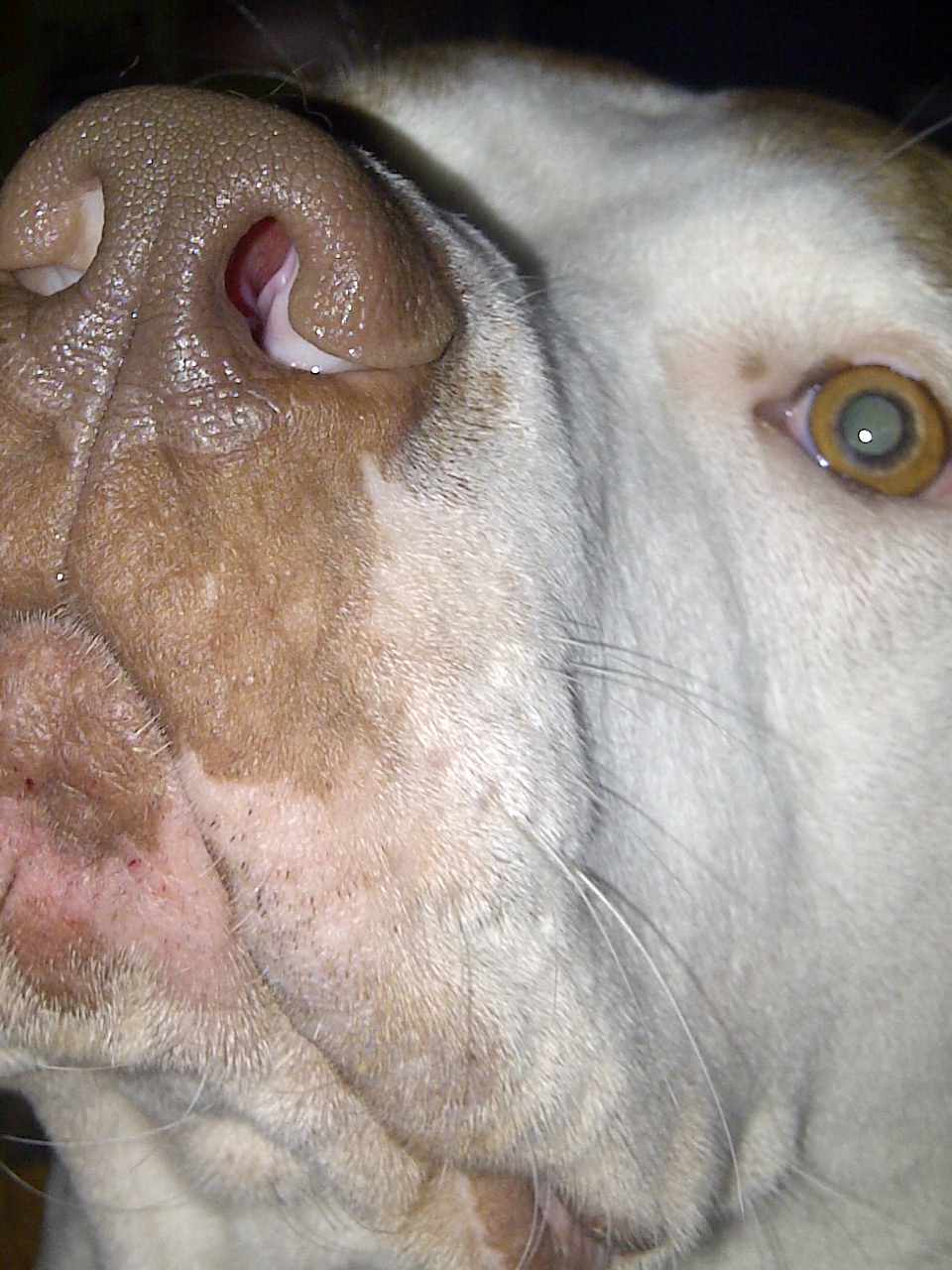I adopted Marley when he was 16 weeks old, in August 2005. Shortly after receiving his final vaccine boosters Marley began developing small bumps on the top of his head. I took Marley to the vet and was immediately told the issues were
allergies. A regimen of antibiotics and steroids were prescribed. During the
time Marley was on these medications his skin would clear up, but once he was off
the meds for a week or so, the issue came back ten fold.
We struggled with Marley's skin issues for several years, with various veterinarians, all of whom prescribed the same regimen of steroids and antibiotics. We tried the hypoallergenic, prescription foods
in the beginning, but ultimately changed to a home cooked and raw diet.
Although this change in his diet made a difference, Marley was still struggling with
itchy, red, scabby skin. He was never comfortable for very long, and he was
never able to sleep through the night.


Over the years I tried a variety of natural remedies for allergies, some of which
made a small difference for a short period of time, but Marley’s skin issues
always seemed to push back through. A friend of mine had mentioned a product called Nzymes, but after all the trials and errors in the past, all the wasted money, I was hesitant to try the program. I decided to search the Nzymes website and after reading through the site and watching the videos, I realized
what we were dealing with and it wasn’t just allergies, it was yeast.
In March 2012, just before Marley's 7th birthday, I purchased
the Healthy Skin Kit from Nzymes and started Marley on the program. Within the
first two weeks I saw a significant difference in his skin, his coat, and in his
general well being. Marley was happy, he began to play with his adopted brother
for the first time in over a year, he was sleeping through the night; he was a completely different dog.
In September I ran out of
the Nzymes products, but started Marley on them again about six weeks later.
During this time he seemed to get worse, his skin became red and inflamed from
head to tail, he was hot all over, he lost most of his fur, and he was lethargic; I was scared. I sent a message to the company via their Facebook page and within an hour I received a call from an employee at Nzymes. After a long conversation about Marley's past, his symptoms, diet etc., we determined Marley was most likely detoxing. The Nzymes products were pushing all of the yeast and toxins out of Marley's body. The following pictures are of Marley during his detox:




As hard as it was to watch him go through this massive detox, I persisted. We gave him baths to soothe his skin as much as possible and the end result is a dog, who after eight years of struggling
with misdiagnosis, thousands of dollars in vet bills and diet changes, using medications that were worsening the issue, and all of
his discomfort, is now happy and healthy.
Marley still struggles with seasonal allergies and we deal with those times as they come, but for the most part he is finally healthy and feeling great! He continues on the Nzymes Back-pac Plus and antioxidant treats, regularly with intermittent doses of the oxy drops and blackleaf products.
Marley 2013
The Nzymes product worked wonders on Marley and their customer service was second to none. This product may not be the right product for everyone, but I would strongly suggest to anyone who has a dog with skin problems, do your research and ask questions if you take your dog to the vet. Anyone who is prone to yeast infections knows, if you take antibiotics you are just opening yourself up for an infection; the same is true for your dog. So, if your dog has yeast, like Marley did, but your vet insists its allergies and offers you antibiotics and/or steroids, you will end up going in circles, possibly for months or years.

























